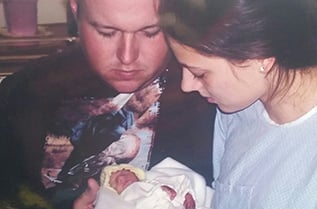This panel of 54 genes intended for patients with a diagnosis or clinical suspicion of Charcot-Marie-Tooth Hereditary Neuropathy and is performed by Next Generation Sequencing (NGS).
8 weeks
81448
$3,000
This panel consists of 54 genes that have been associated with Charcot-Marie-Tooth disease and other motor neuropathies. These conditions affect the peripheral nervous system and include symptoms of muscle weakness, decreased reflexes, foot deformities, and loss of sensation. These conditions can be inherited in autosomal dominant, autosomal recessive, and X-linked patterns, and these disorders exhibit variable clinical presentation, age of onset, degree of severity, and disease progression.
Molecular testing is useful to confirm the diagnosis and to identify the disease causing mutations within a family to allow for carrier testing and prenatal diagnosis.
Next Generation Sequencing
The current design of this panel covers all genes and the flanking intronic sequences. This method allows for analysis of greater than 98% of the targeted sequence for the detection of nucleotide substitutions and small deletions and duplications. Large deletions and duplications will not be detected by this panel. Mutations and variants identified on the panel are confirmed with Sanger sequencing. All novel and apparently pathogenic changes are reported when found within the coding region as well as within 10 basepairs of each intron/exon boundary for each gene. Promoter and 3' untranslated sequences are not included in the current analysis. It should be noted that the current protocol is not specifically designed to detect copy number alterations and single exon deletions may require additional follow-up to determine whether or not they represent technical artifacts. We recommend further array-based testing to more accurately address the concerns of dosage alterations. The Cytogenetic Laboratory at GGC offers a high resolution whole genome SNP microarray. The GGC Diagnostic Laboratory Directors are available for further consultation regarding the limitations of the NGS and array testing procedures.
The preferred sample type is 3-5 ml of peripheral blood collected in an EDTA (purple top) tube. Extracted DNA and saliva are also accepted for this test. Saliva samples must be submitted in an approved saliva kit. Contact the lab to receive a saliva kit or to have one sent to your patient.
The specimen should be kept at room temperature and delivered via overnight shipping. If shipment is delayed by one or two days, the specimen should be refrigerated and shipped at room temperature. Do not freeze the specimen. Samples collected on Friday can be safely designated for Monday delivery.
If the pathogenic mutation(s) are identified in an affected individual using this panel, prenatal diagnosis is available for future pregnancies. Sanger sequencing will be used for prenatal diagnosis when there is a known familial mutation. Additional fees for cell culture and maternal cell contamination may apply. Maternal cell contamination studies are required for all prenatal molecular tests. Contact the laboratory prior to sending a prenatal specimen.
Call our laboratory at 1-800-473-9411 or contact one of our Laboratory Genetic Counselors for assistance.
Robin Fletcher, MS, CGC
Falecia Thomas, MS, CGC
Alex Finley, MS, CGC
